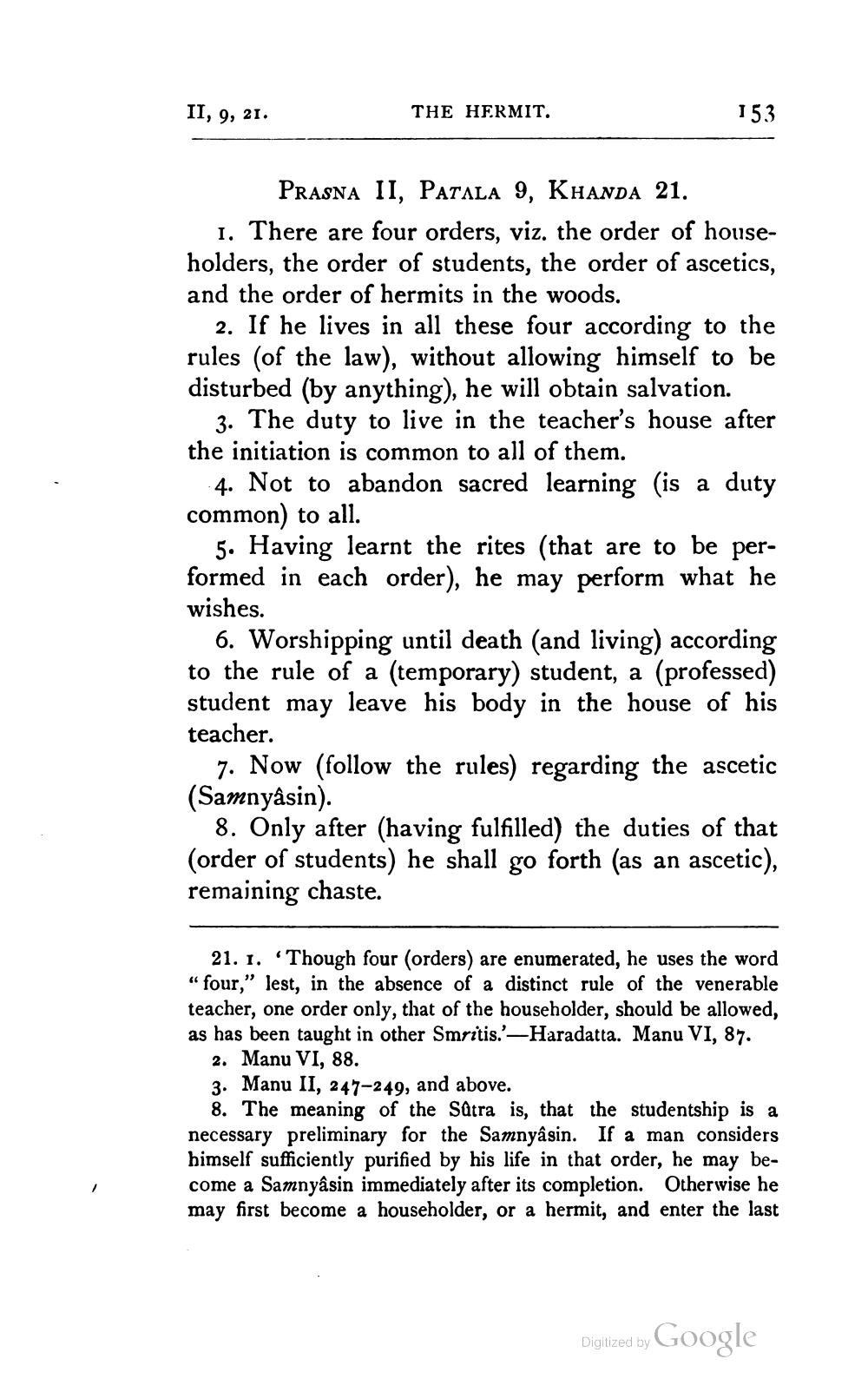________________
II, 9, 21.
THE HERMIT.
153
PRASNA II, PATALA 9, KHANDA 21.
1. There are four orders, viz. the order of householders, the order of students, the order of ascetics, and the order of hermits in the woods.
2. If he lives in all these four according to the rules (of the law), without allowing himself to be disturbed (by anything), he will obtain salvation.
3. The duty to live in the teacher's house after the initiation is common to all of them.
4. Not to abandon sacred learning (is a duty common) to all.
5. Having learnt the rites (that are to be performed in each order), he may perform what he wishes.
6. Worshipping until death (and living) according to the rule of a (temporary) student, a (professed) student may leave his body in the house of his teacher.
7. Now (follow the rules) regarding the ascetic (Samnyâsin).
8. Only after (having fulfilled) the duties of that (order of students) he shall go forth (as an ascetic), remaining chaste.
21. 1. Though four (orders) are enumerated, he uses the word "four," lest, in the absence of a distinct rule of the venerable teacher, one order only, that of the householder, should be allowed, as has been taught in other Smritis.'-Haradatta. Manu VI, 87.
2. Manu VI, 88.
3. Manu II, 247-249, and above.
8. The meaning of the Sûtra is, that the studentship is a necessary preliminary for the Samnyâsin. If a man considers himself sufficiently purified by his life in that order, he may become a Samnyâsin immediately after its completion. Otherwise he may first become a householder, or a hermit, and enter the last
Digitized by
Google




